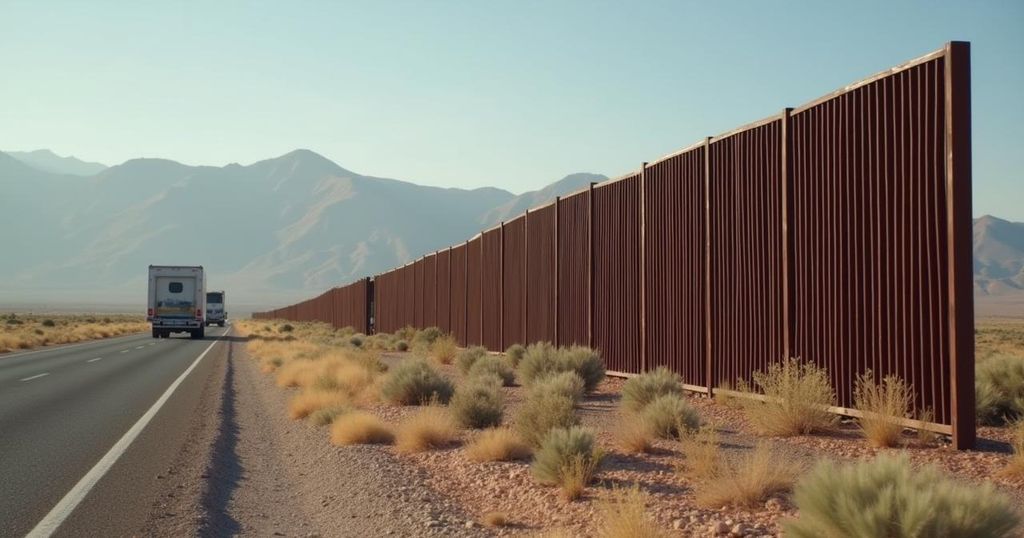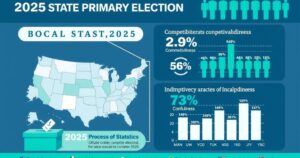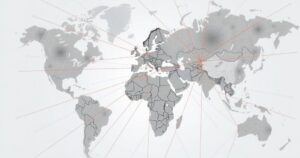Mexico’s Heightened Immigration Enforcement as U.S. Election Approaches: Balancing Economics and Politics

As the U.S. election nears, Mexico enhances border enforcement, leading to a significant reduction in migrant crossings. This development stems from a tacit agreement with the Biden administration aimed at stabilizing regional economic conditions and managing political ramifications. The number of migrants reaching the U.S. border has dropped dramatically, from nearly 250,000 in December 2023 to below 60,000 recently, while humanitarian concerns grow as migrants find themselves stranded in Mexico due to stricter immigration policies. The situation reflects Mexico’s evolving role in U.S. immigration dynamics, balancing economic interests with political pressures.
As the U.S. presidential election approaches, Mexico has intensified its efforts to manage and restrict migrant movements toward the U.S. border, resulting in a significant decline in the number of migrants attempting to cross. Analysts attribute this to a tacit agreement reached late last year between the Biden administration and Mexican officials, recognizing that a chaotic border is economically detrimental to Mexico and could impact its political landscape as well. The current political climate emphasizes that immigration remains a contentious issue, with Republican candidates leveraging border security in their campaigns. Consequently, President Claudia Sheinbaum is cognizant of the potential repercussions of migrant flows on U.S. electoral outcomes and is motivated to maintain stability at the border. Reports indicate a dramatic decrease in migrant encounters at the U.S. border, plummeting from around 250,000 in December 2023 to below 60,000 recently, reflecting Mexico’s heightened immigration enforcement measures. Venezuelan migrants, such as the Sarmiento family, have experienced severe obstacles as they navigate through Mexico, often getting stranded in cities like Mexico City, which has become a temporary refuge for many fleeing dire conditions in their home countries. Unlike in previous years when travel visas enabled smoother transit to the U.S. border, current circumstances have confined many migrants, forcing them into makeshift living situations while they await further developments. This shift in Mexico’s compliance with U.S. immigration enforcement has significant roots in diplomatic negotiations aimed at reducing record levels of migration that strained U.S. cities in 2023. In late December of that year, a United States delegation visited Mexico to press for stricter enforcement measures, making clear that failure to comply could lead to detrimental impacts, particularly in commercial traffic which is vital to Mexico’s economy. Such negotiations highlight a shift in how migration management is leveraged between the two nations, as Mexico’s role as a gatekeeper has expanded dramatically. This is reflected in enhanced immigration policies targeting certain nationalities and a stricter asylum process. While such policies have succeeded in temporarily curbing migrant numbers, experts express concern over the humanitarian implications of these policies, arguing that they place vulnerable migrants at greater risk.
The article focuses on the intricate dynamics between the United States and Mexico as the latter tightens border enforcement in the face of the upcoming U.S. elections. It highlights the underlying agreements that facilitate increased surveillance and restrictions on migrant movements, drafted in response to record migration levels. The relationship between the two countries has evolved, with Mexico now playing a vital role in managing migrant flows into the U.S., driven by economic interests and political pressures. This context is essential for understanding the current immigration landscape which hinges upon both economic repercussions for Mexico and electoral implications for U.S. political candidates, particularly as the Biden administration seeks to navigate public sentiment on border security.
In conclusion, Mexico’s fortified border enforcement strategies reflect an intricate balance between economic interests and political realities, particularly as the U.S. elections draw near. The sharp decline in migrant encounters signals the effectiveness of these measures ostensibly aimed at stabilizing a politically charged issue within the United States. While the current approach has decreased migrant numbers, it raises ethical concerns regarding the treatment of vulnerable populations and the potential long-term humanitarian implications of strict enforcement policies. The evolving U.S.-Mexico relationship regarding migration management underscores the complexities tied to international cooperation in addressing migration amidst fluctuating political landscapes.
Original Source: www.usatoday.com







